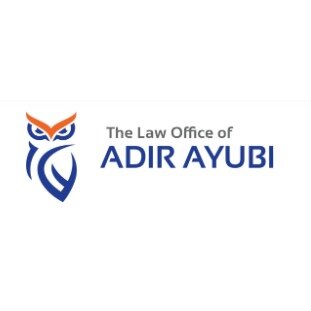Best Asylum Lawyers in Curaçao
Share your needs with us, get contacted by law firms.
Free. Takes 2 min.
Or refine your search by selecting a city:
List of the best lawyers in Curaçao
About Asylum Law in Curaçao
Asylum in Curaçao is a legal process that allows individuals fleeing persecution or violence in their home country to seek protection and refuge. It is governed by international treaties and local laws to ensure that those in need of asylum are granted the necessary legal status.
Why You May Need a Lawyer
Seeking asylum can be a complex and challenging process, requiring a thorough understanding of local laws and procedures. A lawyer can provide invaluable assistance in preparing and presenting your case, navigating the legal system, and ensuring that your rights are protected throughout the asylum process.
Local Laws Overview
In Curaçao, individuals seeking asylum must meet specific criteria to be eligible for protection. It is important to note that asylum seekers are required to follow the established procedures and provide evidence to support their claim for asylum. Working with a knowledgeable lawyer can help ensure that your application is filed correctly and increases your chances of a successful outcome.
Frequently Asked Questions
1. What is the process for applying for asylum in Curaçao?
Asylum seekers in Curaçao must submit an application to the relevant authorities and attend interviews to present their case for protection.
2. How long does the asylum process typically take in Curaçao?
The asylum process in Curaçao can vary in duration, depending on the complexity of the case and the volume of applications being processed.
3. What rights do asylum seekers have in Curaçao?
Asylum seekers in Curaçao are entitled to certain rights, including access to legal representation, medical treatment, and social assistance.
4. Can I appeal a decision if my asylum application is denied?
Yes, individuals have the right to appeal a negative decision on their asylum application in Curaçao through the appropriate legal channels.
5. Can I work while my asylum application is being processed?
Asylum seekers in Curaçao may be eligible to work under specific conditions during the asylum process.
6. Is it possible to apply for asylum if I am already residing in Curaçao?
Yes, individuals present in Curaçao can apply for asylum if they meet the eligibility criteria and have valid reasons for seeking protection.
7. What documents do I need to provide when applying for asylum in Curaçao?
Asylum applicants in Curaçao are typically required to provide identification documents, supporting evidence of their asylum claim, and any relevant personal information.
8. How can I find a reliable lawyer to help me with my asylum case in Curaçao?
Researching reputable law firms or organizations that specialize in asylum law in Curaçao can help you find a qualified lawyer to assist with your case.
9. Are there any language barriers that asylum seekers may face in Curaçao?
Language barriers can be a challenge for asylum seekers in Curaçao, but interpreters and language services are often provided to facilitate communication during the asylum process.
10. What support services are available to asylum seekers in Curaçao?
Asylum seekers in Curaçao may have access to support services such as housing, healthcare, and social assistance through government agencies or non-profit organizations.
Additional Resources
For further information on asylum in Curaçao, you can contact the local immigration office, legal aid organizations, or international human rights groups that specialize in asylum issues.
Next Steps
If you require legal assistance with your asylum case in Curaçao, it is recommended to seek out an experienced lawyer who can guide you through the process, represent you before the authorities, and help you navigate the complexities of asylum law in the country.
Lawzana helps you find the best lawyers and law firms in Curaçao through a curated and pre-screened list of qualified legal professionals. Our platform offers rankings and detailed profiles of attorneys and law firms, allowing you to compare based on practice areas, including Asylum, experience, and client feedback.
Each profile includes a description of the firm's areas of practice, client reviews, team members and partners, year of establishment, spoken languages, office locations, contact information, social media presence, and any published articles or resources. Most firms on our platform speak English and are experienced in both local and international legal matters.
Get a quote from top-rated law firms in Curaçao — quickly, securely, and without unnecessary hassle.
Disclaimer:
The information provided on this page is for general informational purposes only and does not constitute legal advice. While we strive to ensure the accuracy and relevance of the content, legal information may change over time, and interpretations of the law can vary. You should always consult with a qualified legal professional for advice specific to your situation.
We disclaim all liability for actions taken or not taken based on the content of this page. If you believe any information is incorrect or outdated, please contact us, and we will review and update it where appropriate.
Browse asylum law firms by city in Curaçao
Refine your search by selecting a city.








